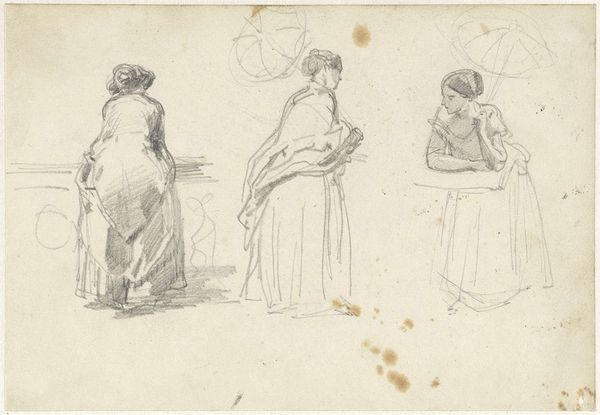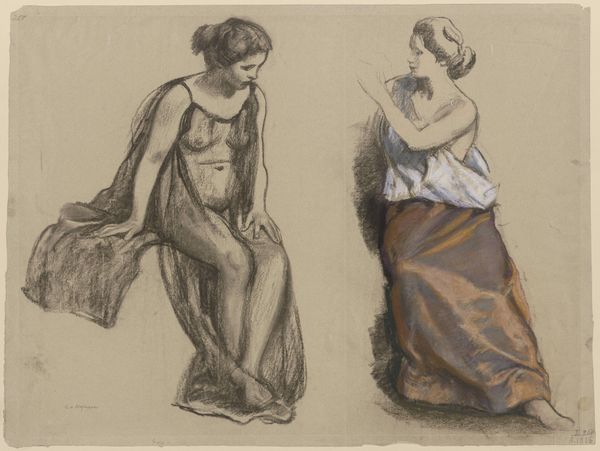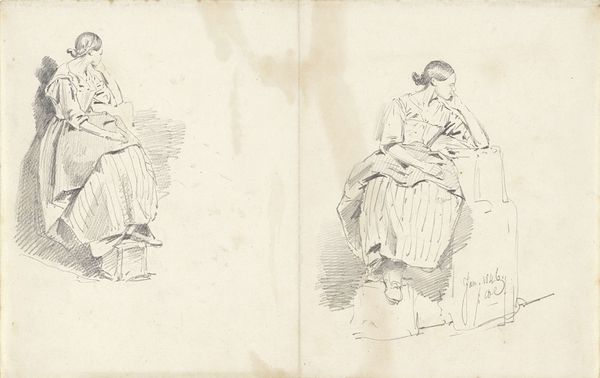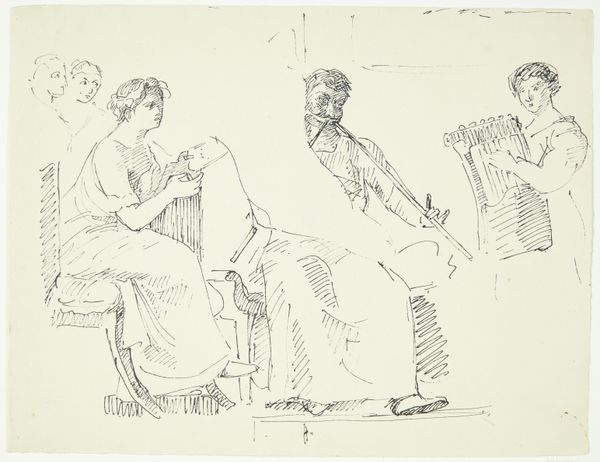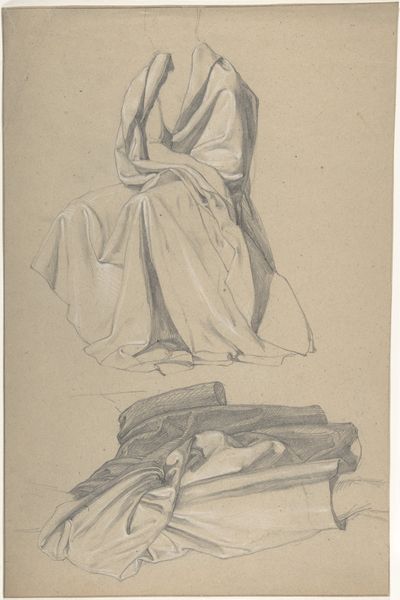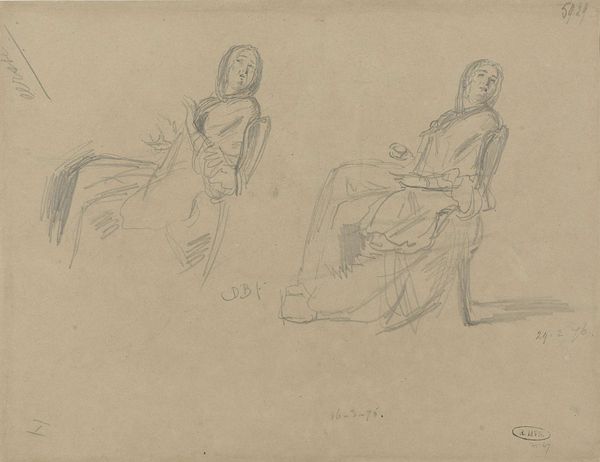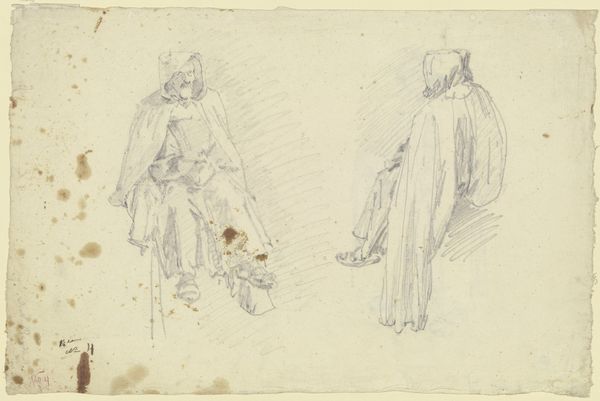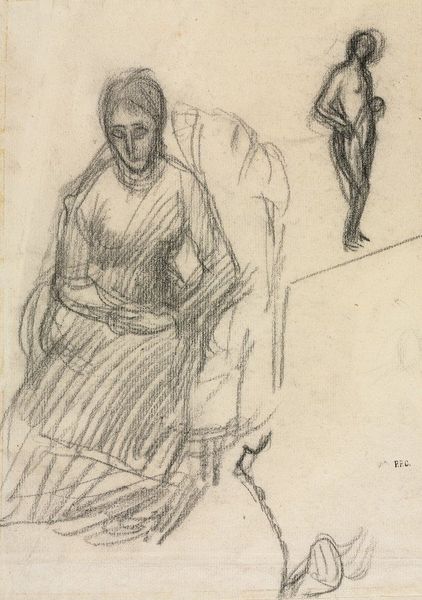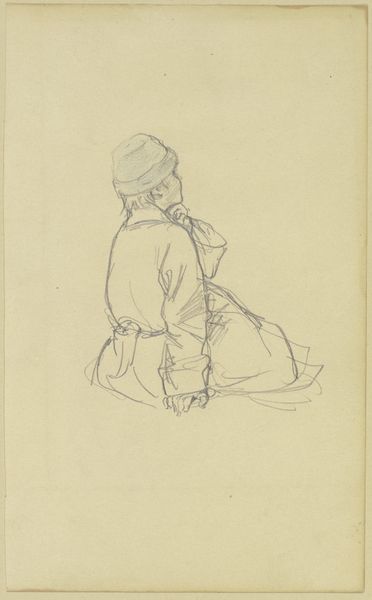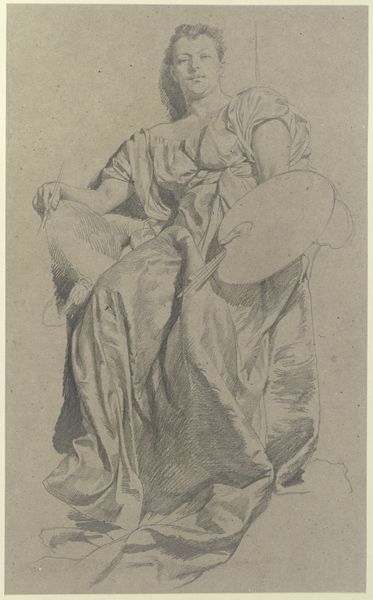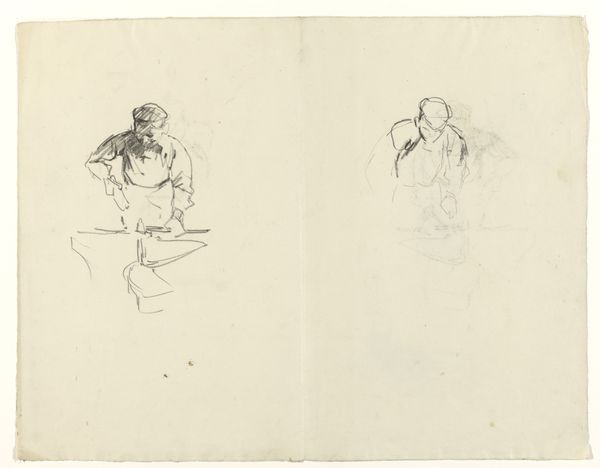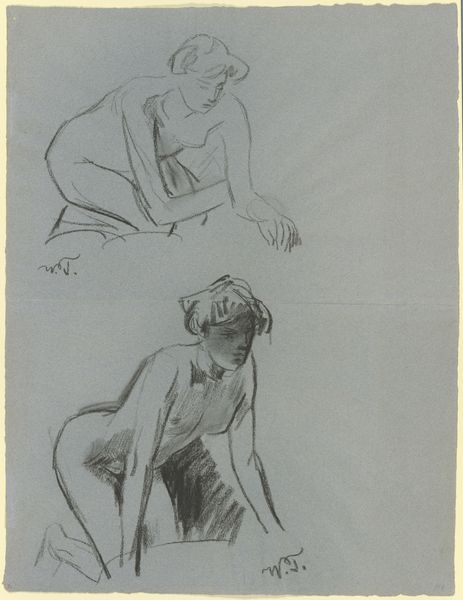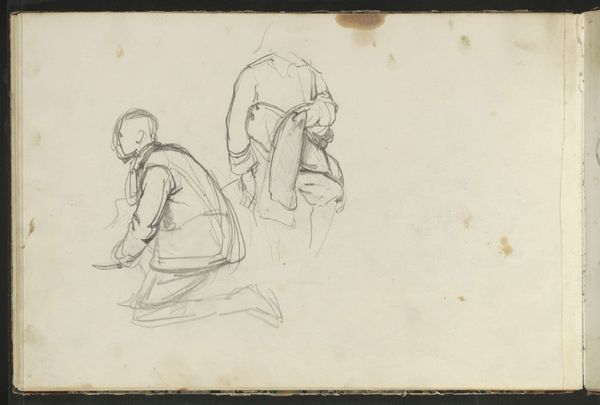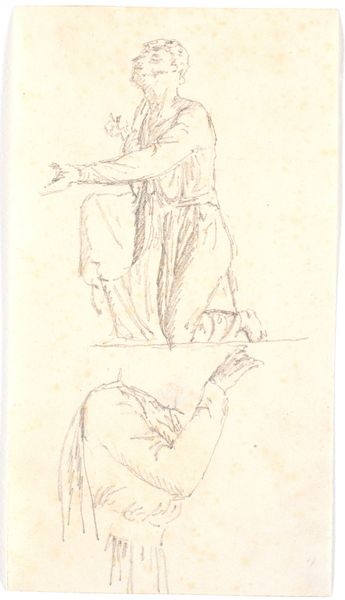
Twee studies van een vrouw, zittend op een kruk, op de rug gezien 1872 - 1950
0:00
0:00
drawing, pencil
#
portrait
#
drawing
#
imaginative character sketch
#
light pencil work
#
pencil sketch
#
figuration
#
personal sketchbook
#
idea generation sketch
#
character sketch
#
ink drawing experimentation
#
pencil
#
sketchbook drawing
#
pencil work
#
sketchbook art
Dimensions: height 497 mm, width 643 mm
Copyright: Rijks Museum: Open Domain
Curator: Barbara Elisabeth van Houten created this double study, "Twee studies van een vrouw, zittend op een kruk, op de rug gezien", sometime between 1872 and 1950. It's rendered in pencil. My immediate reaction is one of gentle observation, almost a silent glimpse into someone's private moment. Editor: Silent, yes, and focused, I think. Look at the density of the pencil work suggesting the weight of the fabric and how it drapes, probably woven from wool or perhaps even linen given the period. It looks like a laborious piece to manage as daily wear; such different connotations compared to our relationships with material and clothes today. Curator: Exactly. And isn't there something poignant in the averted gaze? We are offered only her back, her posture...I feel almost a shared intimacy with the artist, invited to witness something quiet and personal. The lightness of the pencil gives it an ephemeral, fleeting quality, like a memory. Editor: Fleeting for us perhaps, but consider the labor. The physical act of sketching, repeated and refined in these two studies—the lead wearing down, the sharpening, the specific pressure needed for each line... these gestures towards making allude to the time and effort shaping someone's dress or a workday toiling with textiles. There is that beautiful loop between artist and sitter both enacting repetitive hand motions that I find compelling. Curator: I hadn’t considered that loop in that way, between the artist and subject enacting labour – fascinating. To me the sketch, its incomplete quality, it really draws the eye inward. It resists closure, leaving room for imagination, for our own stories to fill the void of the unseen face. It's a testament to the power of suggestion, the beauty of the unfinished. Editor: Perhaps this incomplete quality alludes to a type of "economy of means" wherein limited material and economic resources resulted in efficient and stylized sketches focused on core structure and essential qualities; It reminds me how deeply production can be connected to expression. Curator: I am always intrigued at the immediacy, to that relationship. The artist invites us into a subtle meditation, to linger over a figure that time itself appears to have forgotten. Editor: Yes, and perhaps remembering those nameless labors through these objects grants both artist and sitter new representation.
Comments
No comments
Be the first to comment and join the conversation on the ultimate creative platform.
